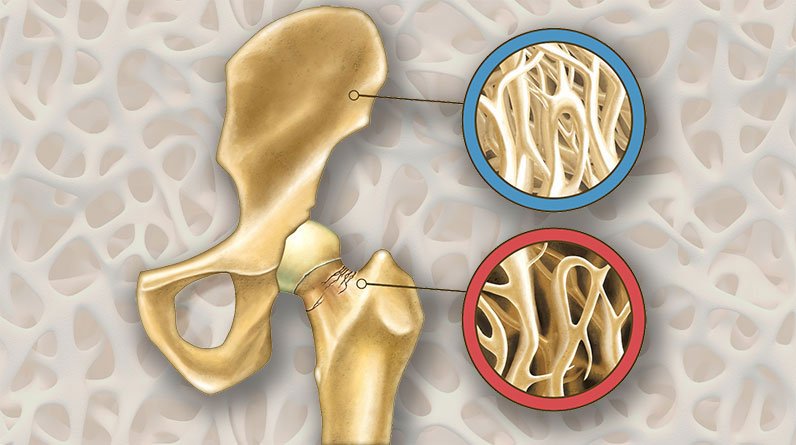
Bone Health and Diabetes
Hyperglycemia, commonly characterized by chronically high blood sugar levels, is a hallmark characteristic of diabetes. It occurs when the body cannot regulate glucose levels properly, leading to multiple health issues.
While the impact of hyperglycemia on various organs and systems is well-documented, its effects on bone health have gained recognition in recent years. Research has unveiled a complex interplay between hyperglycemia and bone metabolism, shedding light on its detrimental consequences on bone health.
Hyperglycemia influences bone tissue through several mechanisms, and the following discusses a few of these processes.
Advanced Glycation End Products (AGEs)
One of the primary factors contributing to bone deterioration in individuals with diabetes is the accumulation of advanced glycation end products (AGEs). These AGEs are formed when glucose molecules react with proteins, lipids, and nucleic acids, impairing normal cellular functions.
AGEs can increase bone fragility by interfering with the synthesis and organization of collagen, a critical structural protein in bones. The body possesses mechanisms, however, to eliminate advanced glycation end products (AGEs), such as through certain enzymes and the assistance of antioxidants.
These processes aid in the removal of AGEs and help maintain a balance. However, when the formation of AGEs exceeds the body’s capacity to eliminate them, or if there are impairments in the body’s ability to remove them, these AGEs can accumulate and result in significant damage.
Osteoblasts and Osteoclasts
Hyperglycemia disrupts the delicate balance between bone formation and resorption. Osteoblasts, the cells responsible for bone formation, are adversely affected by high blood sugar levels.
Studies have shown that hyperglycemia can impair osteoblast function, leading to decreased bone formation. Alternatively, osteoclasts, the cells responsible for bone resorption, tend to be more active in the presence of hyperglycemia, resulting in excessive bone breakdown.
This imbalance between bone formation and resorption contributes to decreased bone mineral density and increased risk of fractures in individuals with diabetes.
Chronic Inflammation
Another factor linking hyperglycemia to bone deterioration is chronic inflammation. Diabetes is associated with a state of chronic low-grade inflammation characterized by increased levels of inflammatory markers such as cytokines and C-reactive protein.
This chronic inflammation can directly affect bone health by promoting bone resorption and inhibiting bone formation. Inflammatory molecules released in response to hyperglycemia can induce oxidative stress, further compromising bone integrity.
The detrimental effects of hyperglycemia on bone health are particularly pronounced in type 1 diabetes, where the body’s ability to produce insulin is compromised. Without adequate insulin, cells cannot effectively take up glucose, leading to persistently elevated blood sugar levels. In addition, individuals with type 2 diabetes who experience insulin resistance are also at risk of developing bone-related complications due to hyperglycemia.
Diabetes Medications and Bone Health
The management of diabetes often involves the use of various medications to achieve optimal blood sugar control. While these medications are crucial for glycemic management, it is important to understand their potential interactions and impacts on bone health.
Several classes of diabetic medications have been studied concerning bone density and health, including metformin, thiazolidinediones (TZDs), and sodium-glucose cotransporter 2 (SGLT2) inhibitors.
Effects of Metformin on Bone Density
Metformin is one of the most commonly prescribed oral medications for type 2 diabetes. It works by reducing glucose production in the liver and improving insulin sensitivity.
Recent research has focused on understanding the effects of metformin on bone health. While initial studies suggested a potential link between metformin use and reduced bone density, subsequent research has yielded conflicting results. Some studies have shown a neutral or even positive association between metformin use and bone health, suggesting a potential protective effect on bone density.
However, more research is needed to fully elucidate the relationship between metformin and bone health, as factors such as duration of use, dose, and patient characteristics may influence the outcomes.
Thiazolidinediones (TZDs) and Bone Loss
Thiazolidinediones, including medications such as rosiglitazone and pioglitazone, are oral antidiabetic drugs that enhance insulin sensitivity in tissues. These medications have been associated with potential adverse effects on bone health.
Studies have indicated that TZDs may increase the risk of fractures and lead to bone loss, particularly in postmenopausal women. The exact mechanisms underlying this association are not yet fully understood.
It is believed that TZDs may affect bone metabolism by altering the differentiation and function of bone cells, leading to decreased bone formation and increased bone resorption. It is essential for healthcare professionals to consider these potential risks when prescribing TZDs, especially in patients at high risk of fractures or osteoporosis.
SGLT2 Inhibitors and Bone Health
Sodium-glucose cotransporter 2 (SGLT2) inhibitors are a newer class of medications that help lower blood sugar levels by promoting the excretion of glucose in the urine. While SGLT2 inhibitors have demonstrated efficacy in glycemic control, their impact on bone health has garnered interest.
Research investigating the effects of SGLT2 inhibitors on bone health is still limited, and findings thus far have been conflicting. Some studies suggest a potential benefit of SGLT2 inhibitors on bone health, including improvements in bone mineral density and a potential reduction in fracture risk.
However, other studies have reported an increased risk of fractures in individuals using SGLT2 inhibitors. Further research is needed to understand better the complex interactions between SGLT2 inhibitors and bone health, including the underlying mechanisms and potential benefits or risks associated with their use.
Final Thoughts
Hyperglycemia affects bone health, and diabetic medications may also cause the risk of bone health issues. Healthcare professionals should consider the interactions between diabetic medications and bone health and weigh these risks for various individuals with diabetes. Close monitoring and a comprehensive approach addressing glycemic control and bone health are essential for optimal diabetes management.
